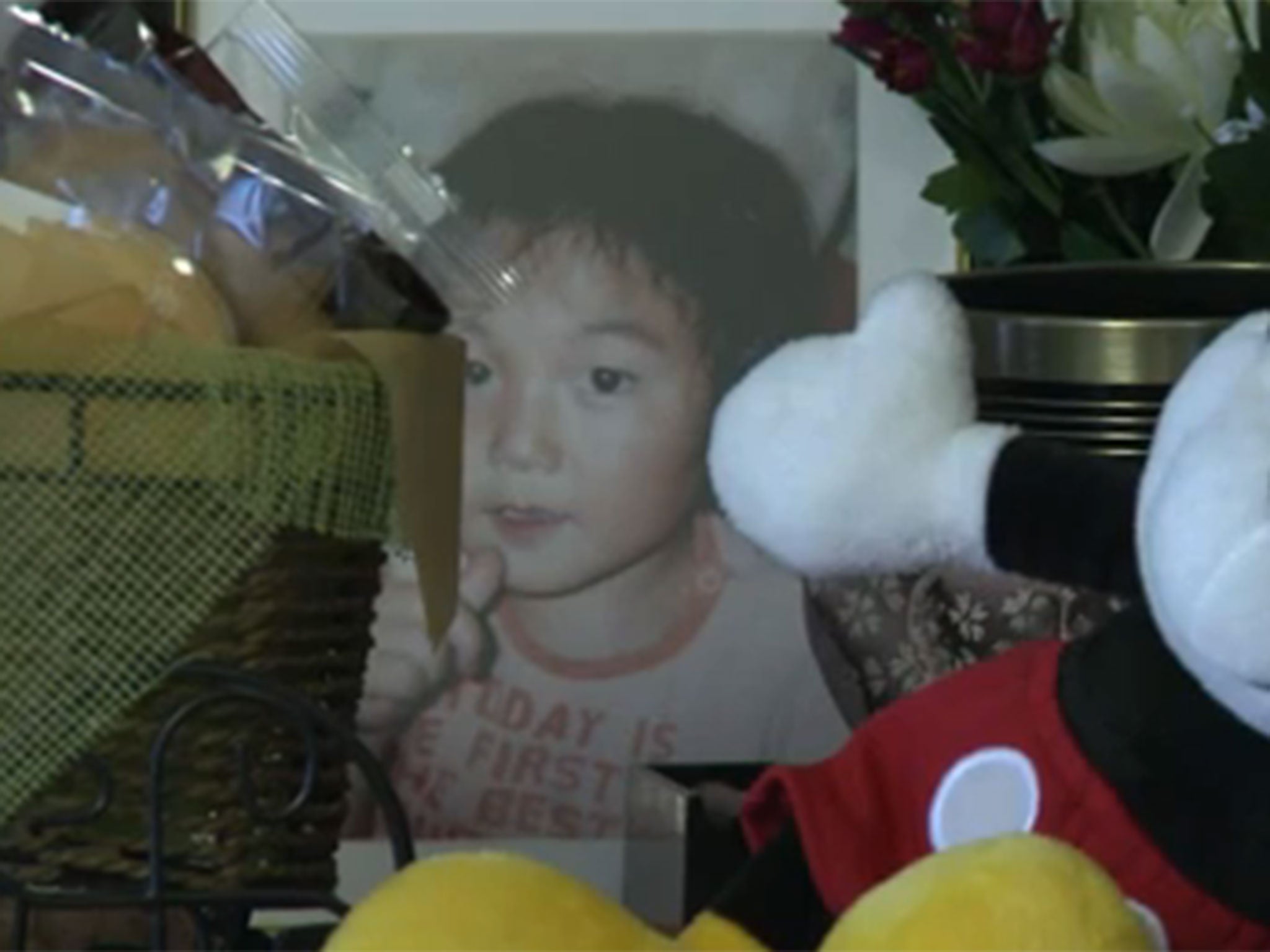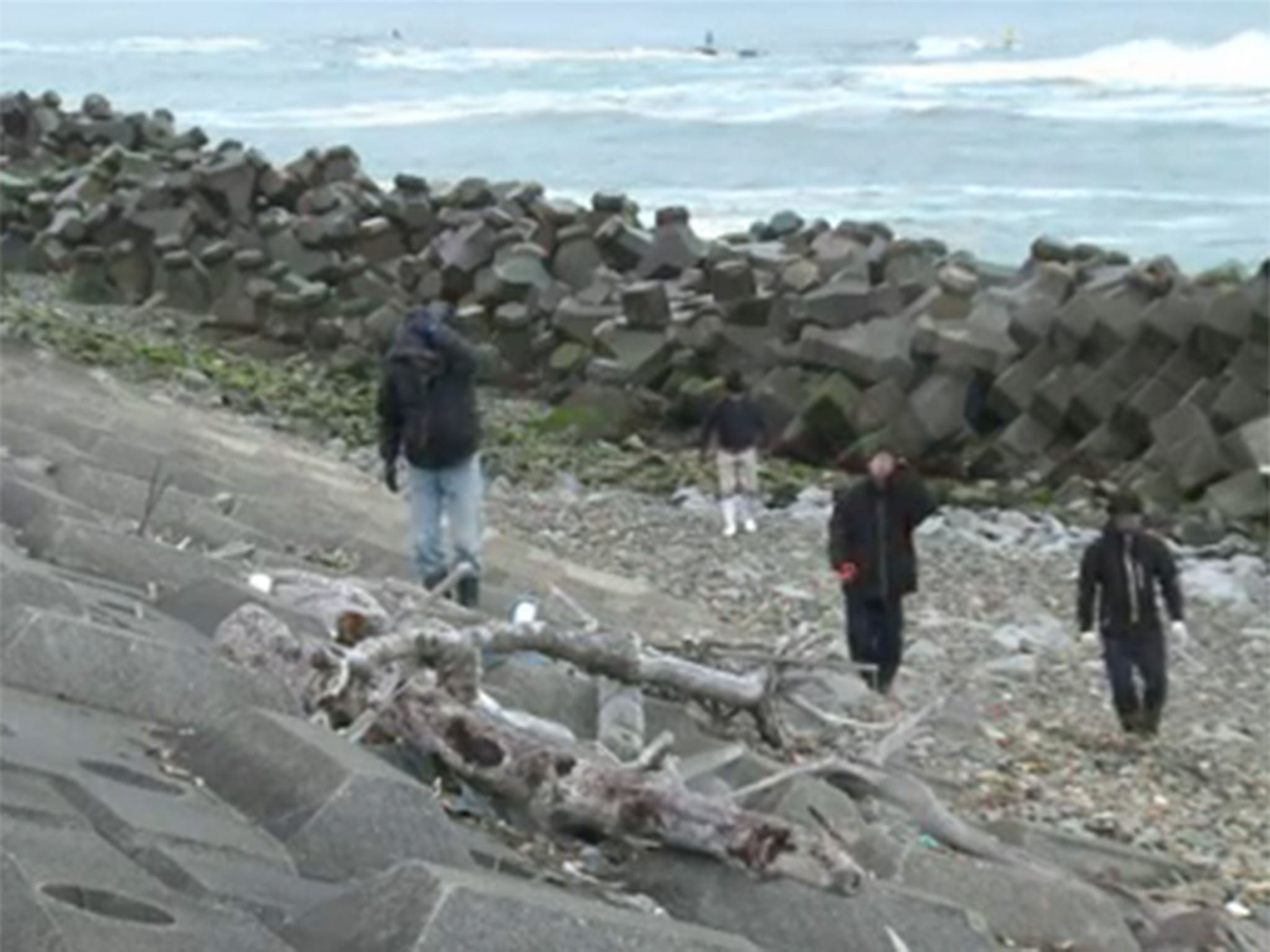The Japanese father still searching for his son lost in 2011 tsunami
Takayuki Ueno also lost his daughter and mother

For Takayuki Ueno, there is no closure to the 2011 earthquake and tsunami that devastated large swaths of Japan.
Four years on, every weekend Ueno and many others scour the coastline near the defunct Fukushima Nuclear Power Plant for the corpses of those missing since 2011.
The latest figures from Japan's National Police Agency state that 2,626 remain missing, with 98 people still unidentified. Overall, 15,884 people died in the disaster.
Ueno, who lives in the Fukushima area, lost his home to the tsunami as well as his mother and daughter. However, while their bodies were found, his son remains one of the 2,626 officially still missing. Thus, every weekend, he searches for his lost son.
It is a gruelling and distressing pastime: "We found the lower half of a body last year," Ueno told AFP. "A little later, police found the torso. But we still haven’t found the head. That means that the person is still technically missing."
While the area where Ueno and others search is outside the exclusion zone put in place after the meltdown of several reactors at the Fukushima plant, search and recovery teams did not stay the region long. Thus, Ueno claims that he and other volunteers are the only ones helping to find the missing 2,626.
"The images that you see from other regions that were hit, Iwate and Miyagi, still show soldiers and police looking for those missing," Ueno said.
"But in Fukushima you just see on loop the images of the power station exploding. The media just interview refugees who escaped the radiation. We find that really shocking. That doesn't reflect our reality. We survived the tsunami here too."
Two years ago, Ueno built a new home next to the one that was destroyed in the disaster, and he gave up his job as a farmer to become a decontaminator who helps to clean the soil in the Fukushima area. For Ueno, his life revolves around the tsunami and its aftermath, even four years on.
"Sometimes I say to myself that he (his son) is hiding in order to keep me alive, in order to save me. I'm not saying I want to die, but I think that looking for him is the only thing keeping me going."

Andrew Grimes, a psychologist who set up a nonprofit that provides children in the Tohoku region with psychotherapy relief in the wake of the tsunami, told The Japan Times recently that many people are still dealing with the trauma of the disaster.
"Many of the victims of the 3/11 catastrophe are still living though crisis, stress and feelings of hopelessness for a happy future," he said. "As an example of this, the national average for clinical depression is 15 percent, whereas according to a recently published medical research report, the figure in the Tohoku region is 24 percent and rising."
The 9.0 magnitude earthquake struck Japan on 11 March 2011, the most powerful earthquake to ever hit the country. It caused powerful tsunami waves and led to the deaths of nearly 16,000 people with over 2,000 individuals still missing. The earthquake and resulting tsunami also led to the meltdown of several reactors at the Fukushima Nuclear Power Plant, with roughly 200,000 people living nearby forced to evacuate.
With the World Bank estimating shortly after the earthquake that the damage might amount to $235 billion, the 2011 tsunami is one of the costliest natural disasters in world history.
Join our commenting forum
Join thought-provoking conversations, follow other Independent readers and see their replies
Comments
Bookmark popover
Removed from bookmarks